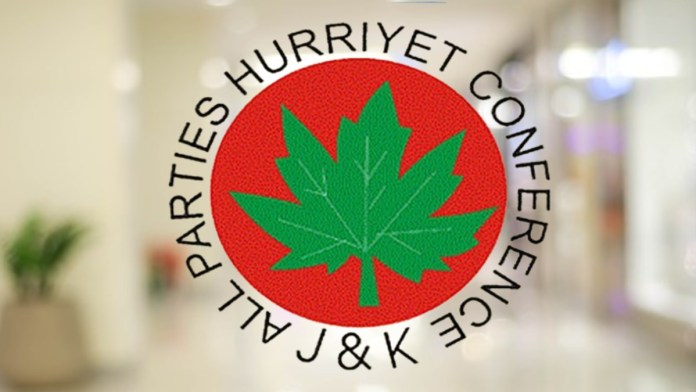ISLAMABAD, Jan 15 (APP):The All Parties Hurriyet Conference (APHC) Azad Jammu Kashmir and Pakistan chapter here on Wednesday strongly challenged Indian Prime Minister Narendra Modi’s recent assertions about “normalcy” in Indian Illegally Occupied Jammu and Kashmir (IIOJK), saying his claims contradict the ground reality.
Referring Modi’s recent speech, during his visit to the region, APHC in a press statement said, while his speech celebrated “an ostensible return to peace and progress”, the lived experiences of people tell a vastly different story.
“If normalcy has truly been restored, we must ask why the region remains under the shadow of nearly 900,000 armed personnel, making it one of the most militarised areas on the planet,” it added.
Prime Minister Modi’s visit, heavily choreographed and surrounded by extraordinary security measures, underscores the disconnect between rhetoric and reality.
The imposition of lockdown-like restrictions during his tour disrupted daily life for ordinary citizens, who were forced to navigate roadblocks, heightened surveillance, and curfews. Such a climate hardly reflects the hallmarks of a region enjoying genuine peace or freedom.
The APHC also pointed to the persistent human rights violations that undermine the narrative of stability.
“Since the abrogation of Article 370 in 2019, arbitrary detentions under draconian laws such as the Public Safety Act have remained alarmingly high, with over 3,000 individuals, including minors, detained without trial,” it said adding reports of enforced disappearances and custodial torture persist, tarnishing the government’s claims of progress and stability.
The statement added that the state remains disarrayed economically while traditional industries like tourism, touted by the Prime Minister as a sign of recovery, have struggled to regain their former vitality.
The region’s unemployment rate, especially among youth, exceeded 23 percent, starkly contradicting the glowing narrative presented during the Prime Minister’s visit.
The APHC underscored the alarming frequency of internet shutdowns in the region, with over 450 recorded since August 2019, including 67 in 2024 alone.
These shutdowns not only stifle free expression but also cripple local businesses and education. Journalists continue to face harassment, with at least 30 instances of arrests or interrogations in the past year.
“If democracy and freedom are truly thriving in IIOJK, as the Prime Minister suggests, why do these repressive practices persist?” the APHC questioned.
The policies pursued since August 2019, including attempts to alter the region’s demographic makeup, have only deepened alienation among its people. Far from fostering peace, these measures have exacerbated tensions and widened the trust deficit between the people of and the government.
“True normalcy cannot be achieved through choreographed visits or empty rhetoric. It is measured by the restoration of democratic rights, respect for human dignity, and the absence of fear in daily life,” it added.
The APHC called on India to abandon coercive policies and instead prioritise justice, transparency, and reconciliation, starting with an immediate reduction in militarisation and a commitment to dialogue with all stakeholders IIOJK.

